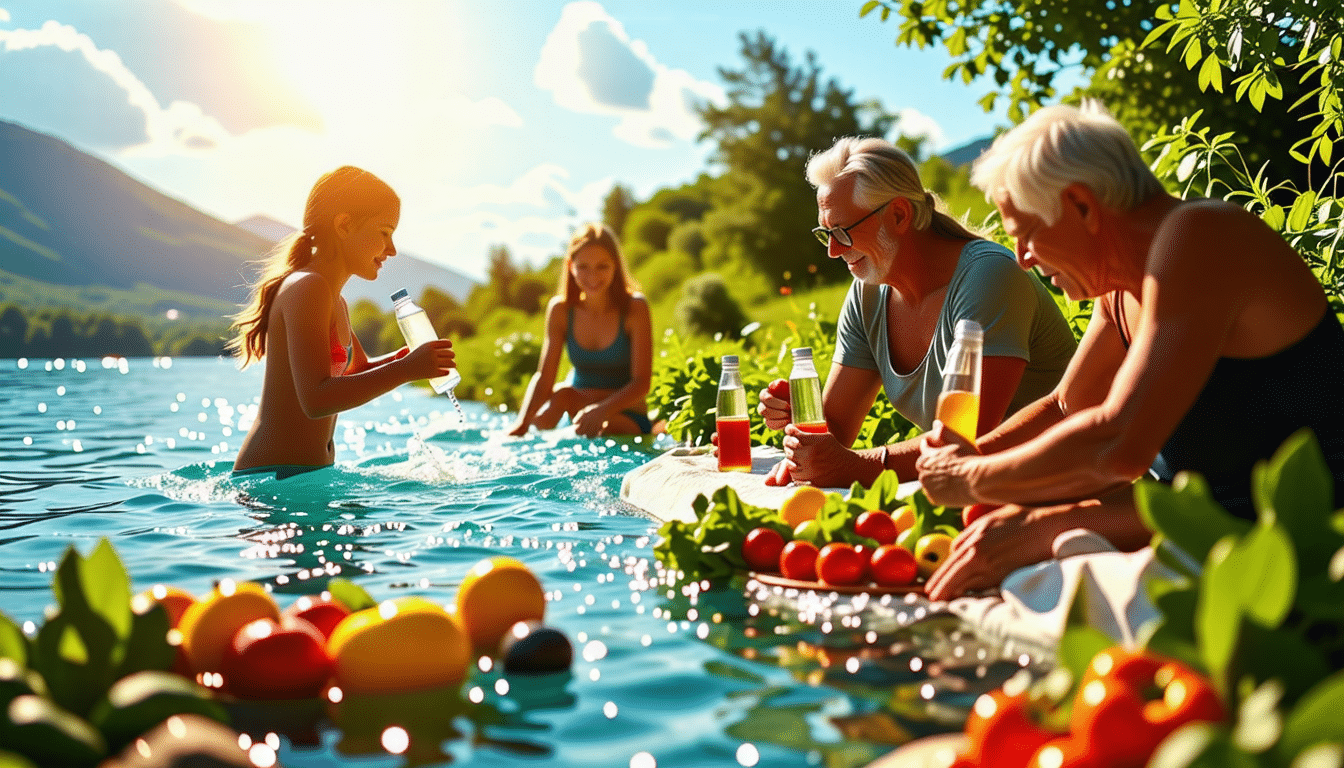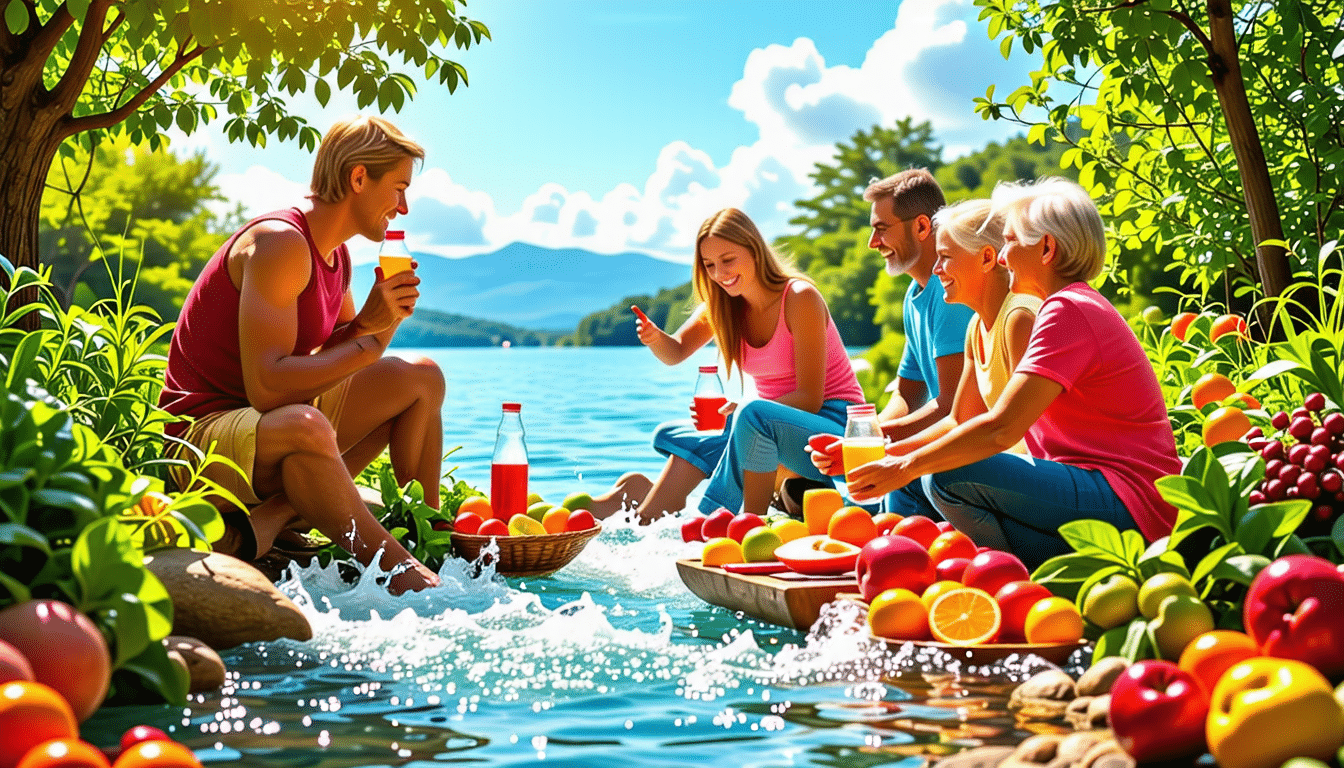Envision a life where vitality and longevity are fueled by something as simple as a glass of water. Recent research underscores the transformative power of staying well-hydrated, linking hydration to the pursuit of a longer, healthier life. The secrets to graceful aging and robust health may lie in keeping our bodies optimally hydrated, which helps maintain balanced sodium levels and supports heart and lung functions. Embrace the gentle, life-affirming promise of water as we delve into the revelations of hydration’s role in unlocking the gateway to longevity.
The Importance of Hydration: The Key to a Longer Life
Water is often referred to as the essence of life, and for good reason. It plays a fundamental role in almost every bodily function. Hydration is not just about quenching thirst; it is a crucial element of a lifestyle that promotes longevity and healthy aging.
Recent studies, including research from the National Institutes of Health, highlight the pivotal role that staying properly hydrated plays in achieving a longer, healthier life. But how exactly does hydration contribute to these outcomes? And what can you do to ensure you’re getting enough water? Let’s dive in.
One of the most significant benefits of staying well-hydrated is the positive impact it has on heart and lung health. Drinking an adequate amount of water daily can help reduce the risk of developing chronic conditions such as heart disease and lung disorders. This is primarily because water helps maintain a balanced level of sodium in the bloodstream, which is essential for heart function and overall cardiovascular health.
Moreover, proper hydration is also linked to improved energy levels and circulation. By keeping your blood well-hydrated, you’re essentially providing your body’s cells with the optimal environment to receive oxygen and nutrients. This translates to better energy levels and potentially warding off fatigue. Plus, consistent hydration supports healthier skin and may even minimize the appearance of wrinkles, offering a natural anti-aging solution.
In a study spearheaded by Dr. Natalia Dmitrieva at NHLBI, evidence suggests that long-term habitual hypohydration, or chronic low water intake, elevates the risk of developing chronic diseases at an earlier age. Not only does this impact life expectancy, but it also affects the quality of life, with individuals potentially experiencing more disease-related discomfort in their later years.
As we age, ensuring proper hydration becomes even more critical. Elderly individuals are particularly susceptible to dehydration due to reduced thirst perception and potential mobility issues that make accessing water more challenging. Adequate water intake can aid in digestion, reduce instances of constipation, and maintain cognitive function, all of which are vital for aging gracefully.
The recommended daily water intake can vary depending on factors such as age, weight, physical activity level, and climate. However, a general guideline is to aim for about 8-10 cups of water per day. Besides plain water, other hydrating beverages include herbal teas and broths, though it’s important to avoid drinks with high sugar or caffeine content which might have diuretic effects.
The discourse around hydration isn’t just about increasing water intake; it’s about ensuring that the beverages consumed contribute positively to health and longevity. It’s worth noting that nearly all physiological processes are dependent on adequate hydration. From detoxifying the body through kidney function to regulating body temperature and lubricating joints, water is the cornerstone of a healthy life.
Not all hydrating efforts are created equal, however. While water is the gold standard, incorporating water-rich fruits and vegetables like watermelon, cucumbers, and oranges into the diet can further assist in meeting daily hydration goals. This can be particularly beneficial for individuals who struggle to consume large volumes of plain water.
Finally, understanding the link between dehydration and the acceleration of aging processes can be a powerful motivator. Dehydration not only exacerbates the appearance of fine lines and wrinkles but also affects skin elasticity and promotes dryness, all of which contribute to an aged appearance.
In summary, as we continue to seek avenues to extend life and improve healthspan, the significance of hydration cannot be overstated. With water being a readily available resource, it provides a simple yet profound way to enhance quality of life. By making hydration a priority, individuals have the potential to unlock the key to longevity, radiant health, and vitality.

Frequently Asked Questions: Hydration and Longevity
Q: Why is hydration important for longevity?
A: Proper hydration is linked to a longer, healthier life. It can reduce the risk of chronic conditions such as heart and lung diseases, and improve energy levels and blood circulation. Staying hydrated helps maintain optimal sodium levels, which are crucial for overall well-being.
Q: How does dehydration affect aging?
A: Dehydration accelerates aging by impacting skin health, making wrinkles more pronounced and reducing elasticity. Long-term lack of hydration increases the likelihood of developing chronic diseases and can lead to a shorter lifespan.
Q: What are the signs that I need more water?
A: Common signs include dry skin, fatigue, headaches, and irregular bowel movements. Feeling thirsty is a clear indicator that your body needs more fluids.
Q: How much water should I drink each day?
A: It varies based on individual needs, but a general guideline is about eight 8-ounce glasses per day, also known as the “8×8 rule.” However, factors like activity level, climate, and health status may require more or less water.
Q: Can proper hydration help reverse the signs of aging?
A: While it can’t completely reverse aging, staying well-hydrated can improve skin appearance and overall vitality, reducing some visible effects of aging.
Q: What are the best drinks for hydration?
A: Water is the best choice for hydration. Other options include herbal teas, coconut water, and drinks with added electrolytes. Beverages like coffee and alcohol, however, can dehydrate the body.
Q: Is hydration particularly important for the elderly?
A: Yes, as we age, our body’s ability to conserve water decreases, and seniors might not feel thirsty even when their body needs hydration. Proper water intake is essential to prevent dehydration-related complications in older adults.
HYDRATION CHEAT SHEET
— James DiNicolantonio (@drjamesdinic) August 12, 2023
The human body is 60% WATER
A THIRD of that is SALT WATER
We cry, sweat & bleed SALT WATER
We’re essentially WALKING OCEANS
Stop drinking PLAIN water to “hydrate”





